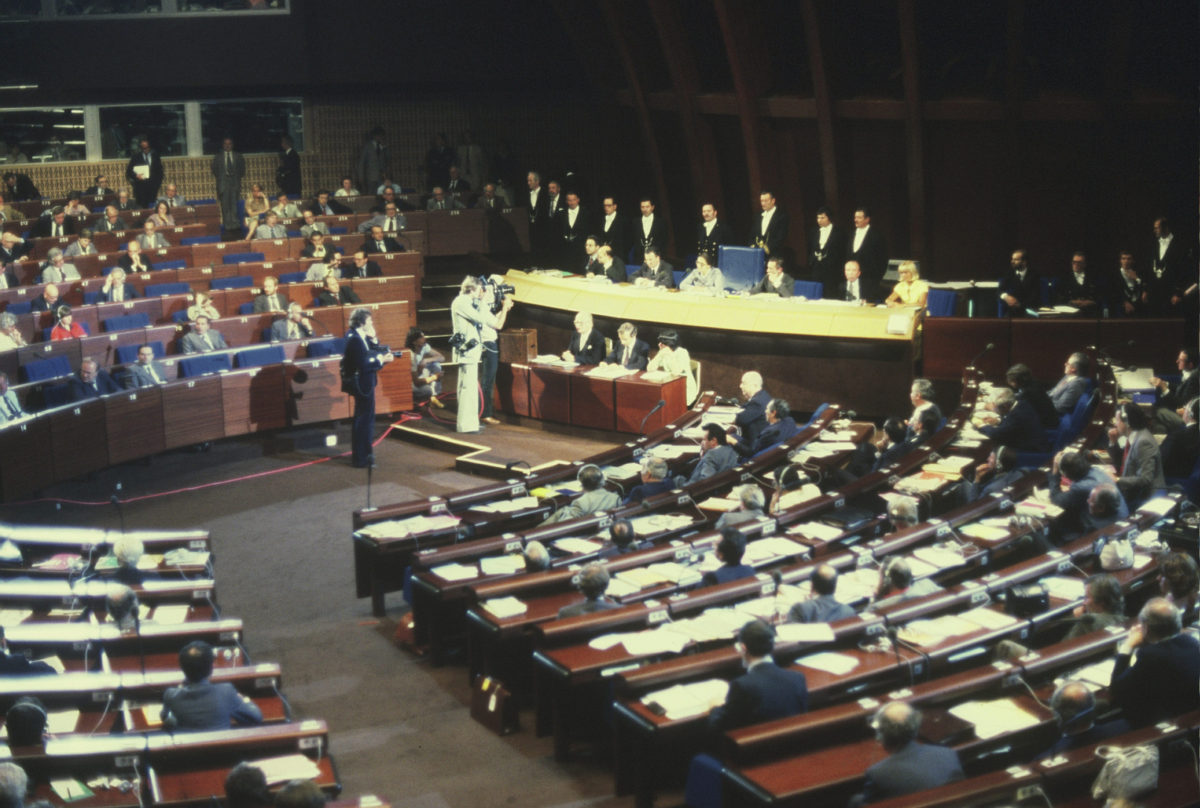Gallery 1: Historical Remembrance
Introduction to EU 1979: A People’s Parliament. A Digital Art Exhibition on Democracy, Human Rights and Women’s Political Participation
EU 1979: A People’s Parliament is a digital art exhibition remembering and celebrating the 67 powerful women MEP’s elected to the 1979 first European parliamentary elections.
The exhibition features the names and biographies of all 67 women elected to the European parliament in 1979 with the women acknowledged as trail blazing role models to inspire future generations. The exhibition features visual artworks, images, posters, articles and text exploring the founding of the EU, the 1979 first European parliamentary elections held by universal suffrage, biographies of the 67 women MEP’s elected and interviews from MEP’s today from Ireland, Germany, the Netherlands and France.
In 1979, the introduction of direct popular elections marked an important step in the life of the European Parliament. The 1979 European elections were the first parliamentary elections held across 9 European Community member states in which over 110 million citizens of Europe voted, electing 410 MEPs. The parliament was elected by universal suffrage and these elections were the first world-wide international elections in history thus becoming the first international parliamentary assembly elected directly by the people of its member states.
The exhibition is created as part of a European wide project called EU 1979: A People’s Parliament – Democracy, Human Rights and Women’s Political Participation. The project uses creative processes of film, a feminist framework and online digital resources to remember the first 1979 European parliamentary elections through a celebration of the stories and names of the 67 powerful women MEP’s elected at that time. The project is co-funded by the Europe for Citizens programme of the European Union. The four European partners are Smashing Times (lead partner), Ireland, www.smashingtimes.ie; St Dona Daria, Rotterdam, the Netherlands, www.donadaria.nl; Gottfried Wilhelm Leibniz, University of Hannover, Germany, www.uni-hannover.de and Francais Pour L’Insertion Sociale et Professionnelle en Europe, Paris, France, http://www.fispe.fr/.
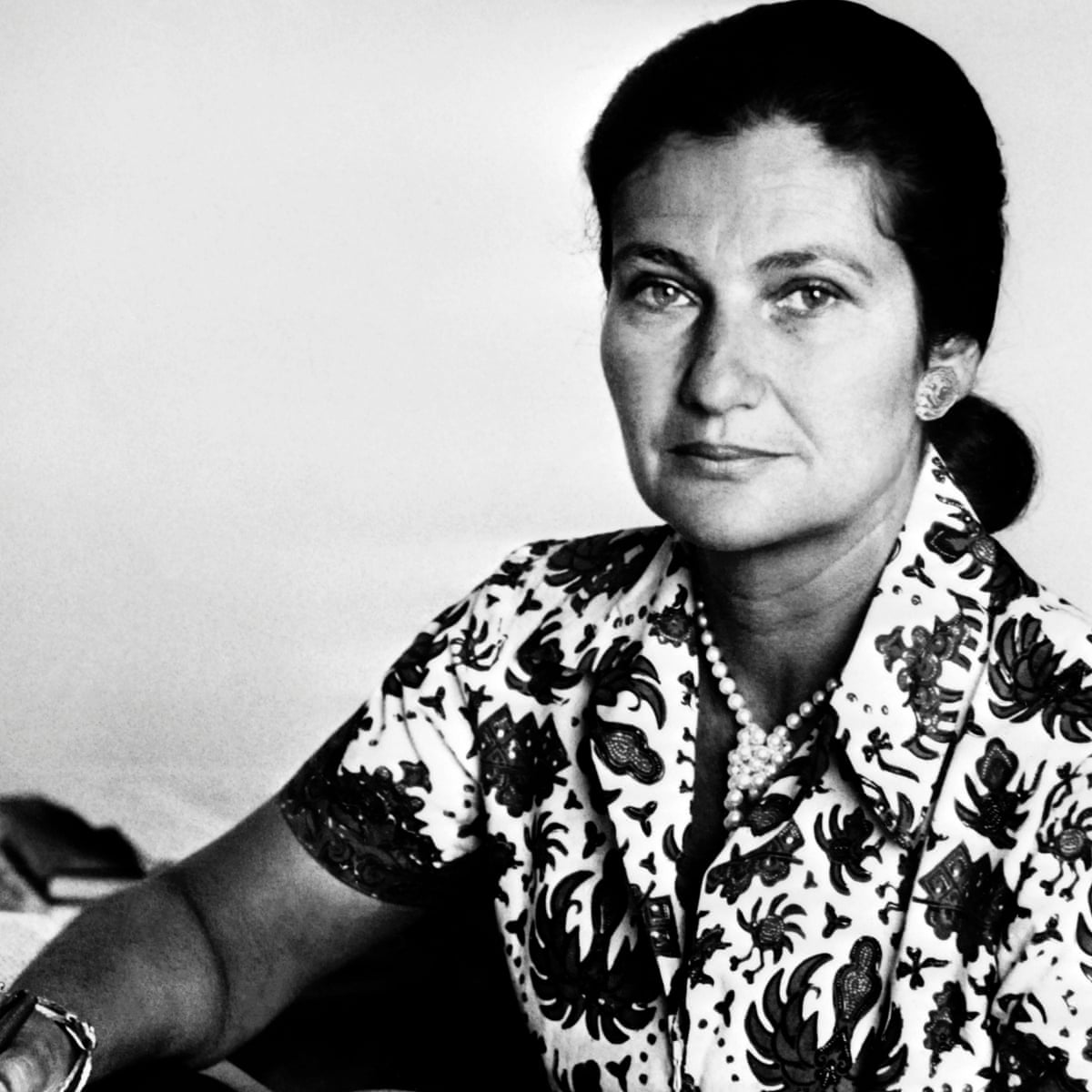
Simone Veil – Photograph: AFP/Getty Images
Women’s Political Representation
Out of the 410 MEP’s elected in the 1979 European parliamentary elections by universal suffrage, 67 (16%) were women with 2 women MEP’s from Belgium, 5 from Denmark, 12 from Germany, 18 from France, 2 from Ireland, 11 from Italy, 1 from Luxemburg, 5 from The Netherlands and 11 from the United Kingdom.
A key moment was the election of French woman Simone Veil (1927-2017) as the European parliament’s first president on 17 July 1979. She was a French lawyer, politician, feminist and holocaust survivor and a woman who fully embodied the deep values and profound historical reasons for the European integration project. In her eyes, the construction of Europe was the only way to avoid repeating the horrors of the past. She had been firmly convinced of this since her return from the death camps at Auschwitz and Bergen-Belsen in May 1945. She survived through courage and determination and began her career as a magistrate in 1974 going on to become the most celebrated and popular female politician in France serving as Minister for Health and then as first President of the European parliament.
The last generation of survivors and witnesses from the Holocaust are disappearing and it is essential that we continue to find ways to ensure that learning and education on the Holocaust continues. The story of Simone Veil highlights how the historical roots to the EU lie in the Second World War as Europeans were determined to prevent the atrocities, killing and destruction from ever happening again.

Allied Convoy crossing the Atlantic during World War II
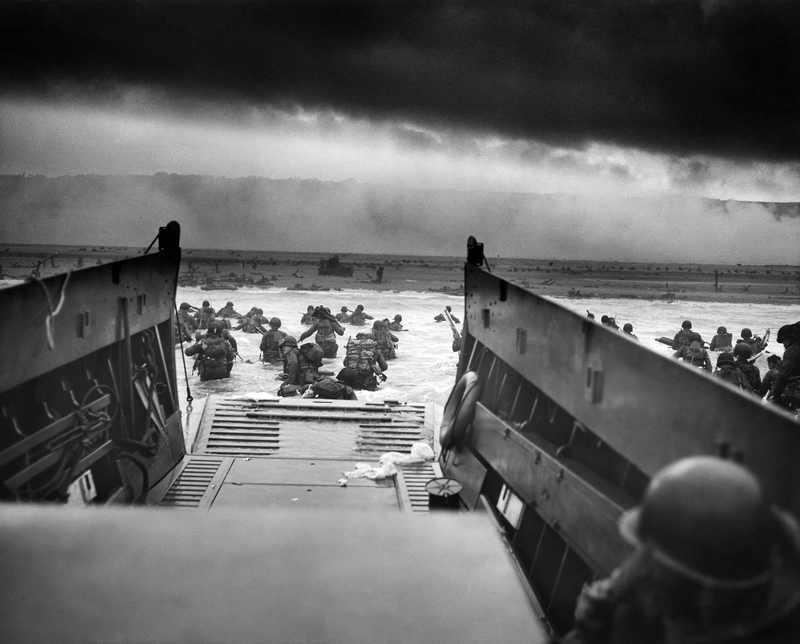
Landing Craft delivering Troops to Omaha Beach during D-Day, World War II
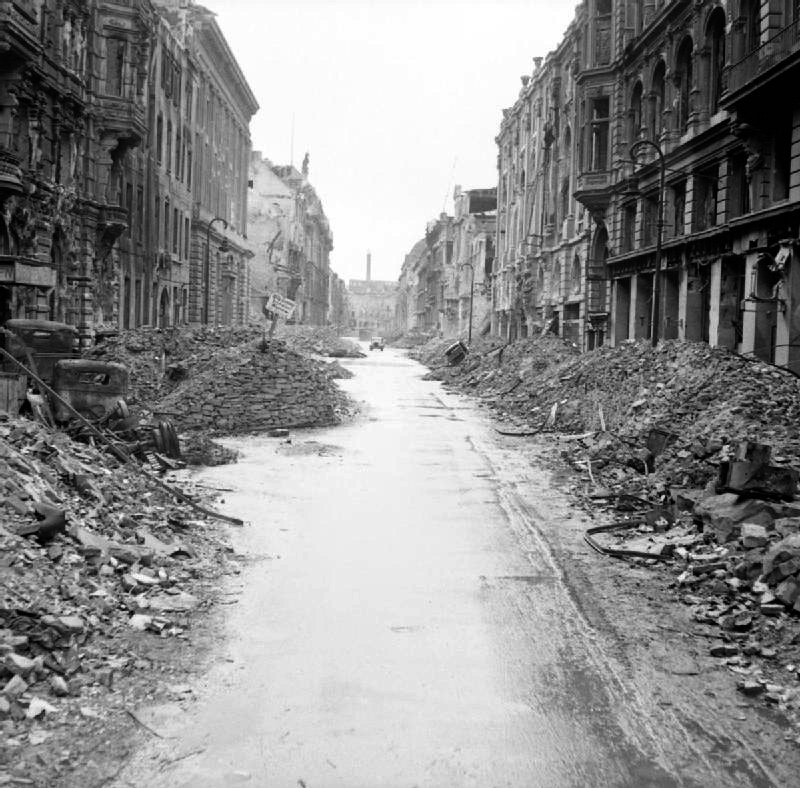
A devastated street in the city centre just off the Unter den Linden after the Battle of Berlin
Gender Equality
By remembering the stories of the 67 women elected in the 1979 European parliamentary election this digital art exhibition aims to promote gender equality as a core component of peace and democracy for the EU. Equality between women and men is a fundamental EU value. A key component for promoting democracy and peace is to ensure support for feminism including equal economic independence for women and men, equal pay for work of equal value, equality in decision-making, an end to gender-based violence and the promotion of gender equality, dignity and integrity for all people equally across the world.
The EU is founded on the principles of liberty, democracy, respect for human rights and fundamental freedoms, and the rule of law, and was set up to ensure an end to fascism, dictatorships and war. By remembering and celebrating the contribution of 67 powerful women MEP’s to the 1979 European elections, this project highlights the important role the EU can play in promoting democracy, human rights and equality for all, and the promotion of women in political life both at national and EU levels.
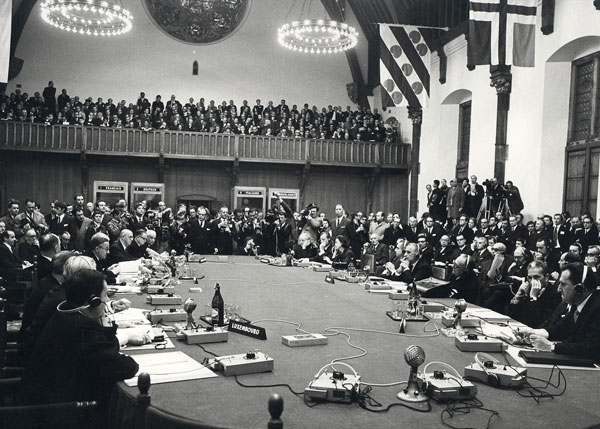
Founding of the EU

Peace in Europe – Credit: Reuters
Artist Engagement

As part of the European-wide project EU 1979: A People’s Parliament Smashing Times have created an interdisciplinary digital art exhibition remembering and celebrating the 67 powerful women MEP’s elected to the 1979 first European parliamentary elections.
The exhibition features visual artworks, poetry, stories, images and posters. What all the artists share is a belief that art can serve as a catalyst for celebrating and raising awareness of human rights and for the promotion of political debate on democracy, equality and peace.
Twelve artists have contributed to the EU 1979: A People’s Parliament virtual art exhibition. Three artists are from Ireland. Noelle McAlinden is based in Northern Ireland and works on a cross-border basis, displaying her artwork in Northern Ireland, Ireland and internationally. Noelle is a Visual Artist, Creative Advisor, Mental Health Campaigner, Curator, Cultural Broker and an ambassador for positive mental and emotional well-being with a dedication to the prevention of suicide. Hina Khan is a visual artist, originally from Pakistan and now based in Cork, Ireland and Mary Moynihan is a writer, theatre and film-maker, and Artistic Director, Smashing Times International Centre for the Arts and Equality. Mary is based in Dublin, Ireland. Our final artist from Ireland is the award-winning poet and writer Féilim James who is based in Dublin.
The artists from the Netherlands are Luis Bracamontes, an award-winning queer, feminist, Spoken Word Poet, originally from Mexico and now living in Rotterdam, the Netherlands; Nazrina Rodjan, an illustrator and animator from Hidden Lion Studio, based in Rotterdam, the Netherlands; and Jobert Tremus, a fashion designer, from the Netherlands.
The artists from Germany are Farnaz Nasiriamini, a freelance journalist and author interested in telling stories to inspire reflection and action and Marianna Tuokkola, a photographer. The artists from France are Gilles Lange AND Snježana Šimić who are both photographers and Michel Dizel, a teacher and writer.
To view the artworks go to Gallery Four.
Click on each link below to view the articles and documents in this gallery:

